The historic recent UN General Assembly (UNGA) resolution, recognising a clean, healthy and sustainable environment as a universal human right, did not come out of the blue.
Landslide support for the resolution (161 votes in favour, none against, eight abstentions*) followed more than a decade of activism and advocacy by professionals, communities and environmental justice movements all over the world.
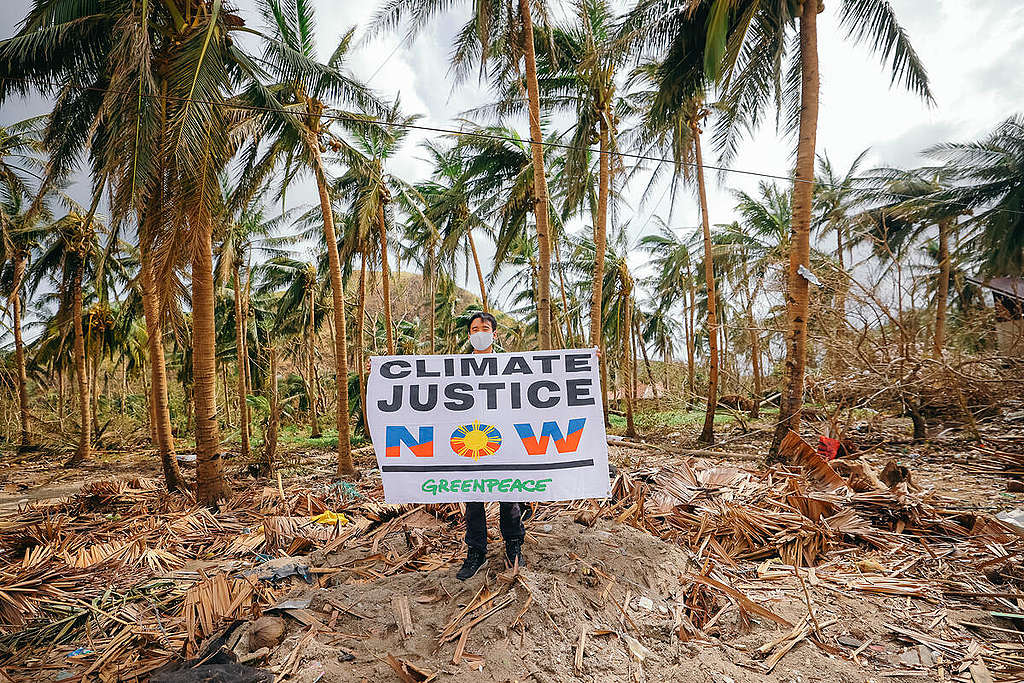
When the UN appointed an independent expert on human rights and the environment in 2012, it was already 40 years since the first global UN Conference on the Environment in Stockholm, whereupon the Stockholm Declaration positioned the environment as a major world issue for the first time. The current Special Rapporteur on human rights and the environment, David R. Boyd, backed by a groundswell of demand from Indigenous Peoples, social movements, local communities, academics and groups including Greenpeace, led the push for adoption in October last year of the right to a healthy environment by the UN Human Rights Council (‘HRC’).
Climate and environmental litigation – lawyering up for the planet – had been gathering pace and, less than a year after the HRC, the UNGA’s historic resolution smashed through the wall of cynical billion-dollar industrial propaganda that attempts to deny, disown and downplay the environmental and human rights atrocities their businesses caused.
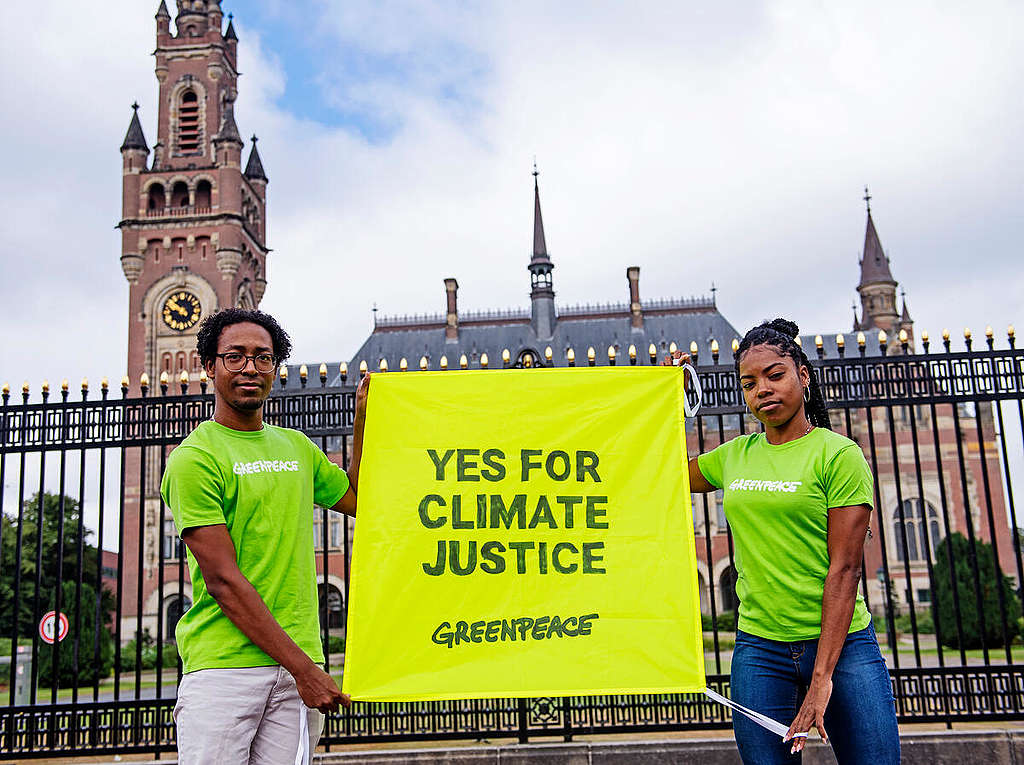
Intensifying environmental litigation
While many cases have been argued, many more major ones are still under way – each case establishing a stronger foothold for others and adding weight to the central argument that governments must protect – and corporations must respect – the right of present and future generations to enjoy a healthy and safe environment, essential for the fulfilment of the right to life (and future family life).
Cases currently pending before the Grand Chamber of the European Court of Human Rights (ECtHR) include the Greenpeace-supported Swiss ‘KlimaSeniorinnen’ (Senior Women for Climate Protection), whose advanced ages mean, if States fail to act, they will be at risk of premature death, and their descendants left to foot the bill for climate disasters. Meanwhile, at the other end of the generational scale, six young Portuguese applicants are taking 33 countries to the ECtHR for failing to act to protect vulnerable youths already experiencing physical and psychological impacts, including eco-anxiety, and the costs of climate breakdown for which they bear no responsibility. The ECtHR will also hear the first challenge to new oil exploration, brought by Greenpeace Nordic, Nature & Youth, together with six young Norwegian applicants.
From young to old, these and other climate cases will be bolstered by the UNGA resolution: it empowers the climate-vulnerable and emboldens judges to take firmer stances on the human right to a clean, healthy and sustainable environment, and to order governments to hold polluters to account and guarantee higher environmental standards for present and future generations. This resolution provides a precedent, which may soon be strengthened further if progressed to the International Court of Justice. It underscores the gathering worldwide wave of environmental litigation that will ultimately help overrun the fortress of fossil fuel fraud and make the polluters pay for harming this Earth and its people for so long.
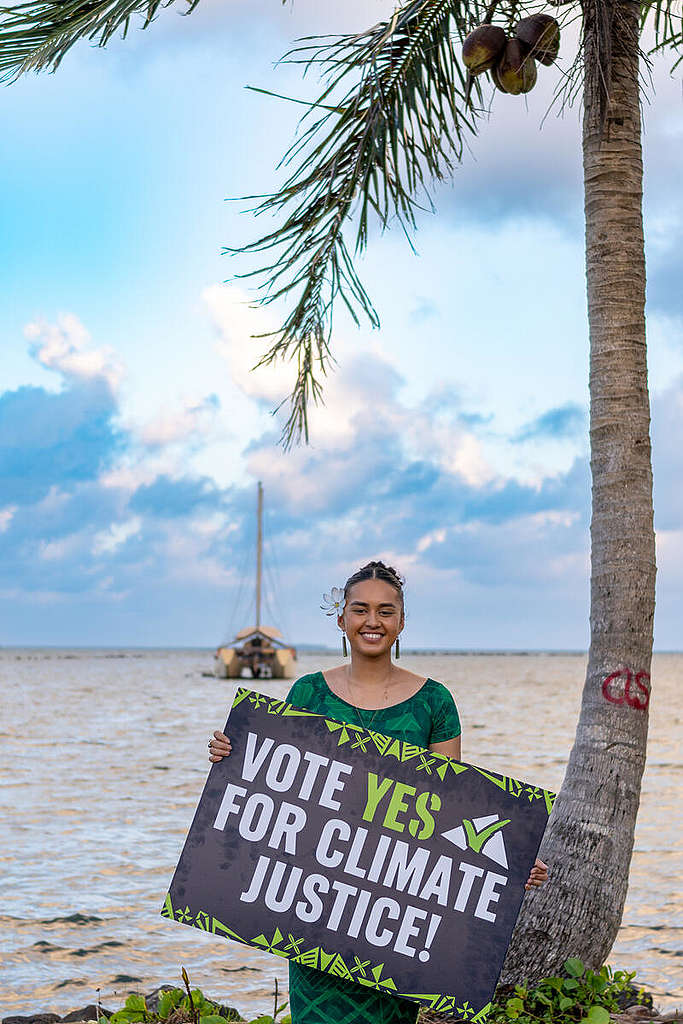
In profile:
Some of the cases around the world that will benefit from or intersect with the UNGA resolution:
Africa
– Greenpeace Africa and Natural Justice vs Shell on South Africa’s Wild Coast
– Lawsuits continue against Shell’s appalling record in Ogoniland, Nigeria
– STOPEACOP challenge to the East African Crude Oil Pipeline (EACOP), threatening the biodiversity, communities and environmental integrity of Uganda and Tanzania
Americas
– Greenpeace Argentina and others’ challenge to offshore oil exploration in the Argentine Sea
– The Escazu Agreement in Latin America and the Caribbean to protect environmental rights defenders
– CARICOM support for Advisory Opinion from International Court of Justice
– USA: Numerous cases filed by cities and states across the US allege major fossil fuel industry players misled the public on climate change to devastating effect, while many Federal courts and the Supreme Court remain hostile to climate cases
Asia & Pacific
– The implementation of the Philippines Human Rights Commission Report, whose hearings found in May 2022 that Carbon Major companies are legally and morally accountable for their role in climate change
– The call by Vanuatu and the Pacific Island Forum to “take the world’s biggest issue to the world’s highest court”, asking the International Court of Justice to set out legal obligations on States to protect their peoples from the adverse impacts of climate change.
Europe
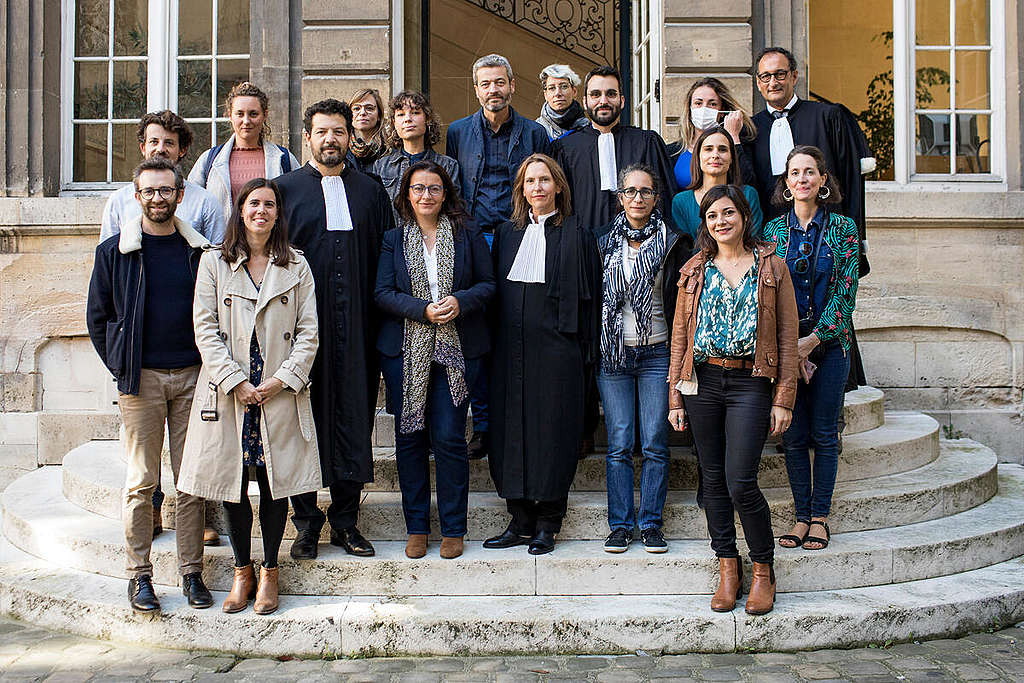
– The Portuguese youth vs 33 European States
– The Urgenda climate case in Netherlands, whereby the Dutch Supreme Court found that the government must reduce emissions in line with human rights obligations
– The Klimaseniorinnen in Switzerland bringing a lawsuit against the Swiss government
– The People v Arctic Oil in Norway bringing Arctic oil drilling to the ECtHR (petition in Norwegian)
– The Neubauer case: young people in Germany challenging the government’s climate goals
– L’Affaire du Siècle in France
– Shell ordered to reduce emissions by 45% in the Netherlands
– The Polish energy giant PGE GiEK ordered to decide whether to prepare decarbonisation strategy
– The appeal by Greenpeace Belgium and others against state approval of petrochemicals giant Ineos’s plastics plant project in the Port of Antwerp
– The challenge to the UK government over the approval of Shell’s new Jackdaw oil field exploration
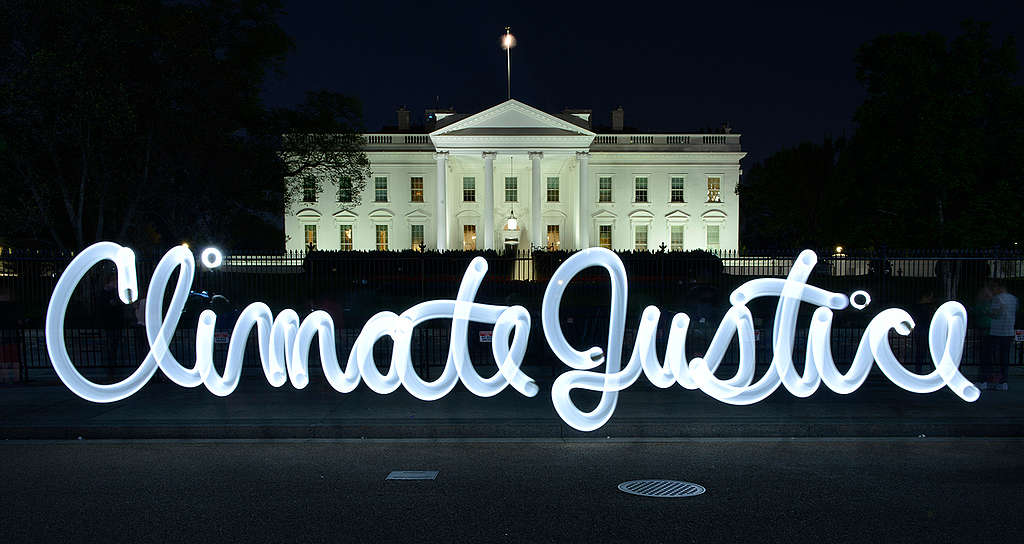
*Belarus, Cambodia, China, Ethiopia, Iran, Kyrgyzstan, Russian Federation and Syria abstained, arguing that the right can only be recognised as legally enforceable through international treaties.
Maria Alejandra Serra Barney is Climate Justice and Liability Counsel at Greenpeace International; Richard Harvey is Legal Counsel, Campaigns and Actions, in the Greenpeace International Legal Unit
